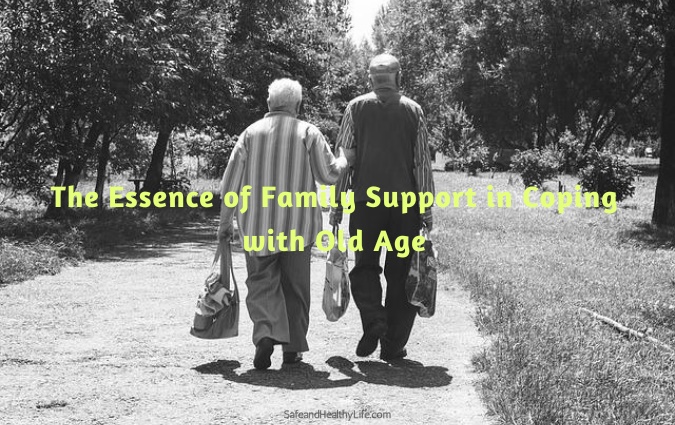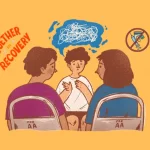
The world is changing every day, and sometimes it is hard to keep up. As we get older, our bodies change, and we can no longer do the things we used to do. And it is natural to feel scared and alone during this time.
However, we are not alone, as our families can be a great source of support as we age. They can help us with the day-to-day tasks that become more difficult, and they can be a shoulder to cry on when we need them.
However, providing care for an aging loved one can be a challenge. It can be difficult to balance work and family responsibilities, and caregivers may feel isolated, stressed, or overwhelmed.
There are several ways to get support as a caregiver, and this article will explore some ways that families can support their aging loved ones:
1. Help with daily tasks.
As we age, everyday tasks can become more complex, but our families can help us by taking on some of these tasks, such as grocery shopping, cooking, and cleaning. It can help to relieve some of the stress that caregivers feel. Related.
Especially for veterans of foreign wars, their caregivers often feel a great sense of responsibility in providing for the basic needs of their loved ones. There is also a need to be patient and understand the limits that come with age.
During the service, soldiers often experience asbestos exposure. Unfortunately, leading to the development of mesothelioma years later.
The average life expectancy for someone with mesothelioma is just 12 to 21 months, so caregivers need preparation for such challenges of this diagnosis.
However, veterans can get help to treat various illnesses such as cancer, PTSD, and more.
2. Be There For Emotional Support.
It is natural to feel scared or alone as we age. Our families can provide us with much-needed emotional support during this time.
They can listen to our concerns and offer words of encouragement. Just knowing that someone is there for us can make a world of difference.
In addition, caregiver support groups can provide emotional support to caregivers and their aging loved ones.
However, it is essential to remember that caregivers need emotional support, too. They may feel isolated, stressed, or overwhelmed. Caregivers also need to take care of themselves emotionally and physically.
Otherwise, they will not be able to care for their loved ones.
3. Help With Financial Planning.
As we age, we may need help with financial planning. Our families can assist us with budgeting, paying bills, and filing taxes. It can help ease the burden on caregivers and ensure that our finances are in order.
Also, many organizations offer financial assistance to families caring for aging loved ones – moreover, the Social Security Administration benefits-eligible veterans and their families.
However, it is essential to be careful when giving financial power of attorney to someone. This person will have access to our bank accounts and other assets. It is necessary to choose someone we trust implicitly and who is good with money.
4. Provide Respite Care.
Respite care is temporary care that is available to caregivers. It can be a lifesaver for caregivers who are feeling overwhelmed.
Respite care is for family members, friends, or professional caregivers. It can be for a few hours, days, or even weeks. This type of care can give caregivers time to rest, take care of themselves, or take a break.
When choosing respite care, it is essential to find someone we trust who is compatible with our loved ones. We should also ensure that the respite care provider is aware of our loved ones’ needs and how to meet them best.
5. Plan for the future.
As we age, it is essential to plan for the future. It includes making legal and financial arrangements.
Our families can help us with this by ensuring that our wills are up to date and that we have all the necessary legal documents in place. We should also plan for our long-term care needs, such as where we will live and what type of care we need.
It alleviates some of the stress on our caregivers and ensures that our needs are taken care of. Planning for the future can be difficult, but it is essential. Our families can help us by providing emotional and financial support.
They can also allow us to find respite care and plan for our long-term care needs. Knowing that our families are there for us can make a world of difference.
However, it is essential to remember that caregivers need support, too. They may feel isolated, stressed, or overwhelmed. Caregivers need to take care of themselves emotionally and physically.
Otherwise, they will not be able to care for their loved ones.
6. Be Patient.
Caregiving is a demanding job, and it is not always easy. There will be good days and bad days. Sometimes, we may feel like we are at our wit’s end.
It is essential to be patient and remember that this is a difficult time for everyone involved. Our caregivers are doing their best to care for us, and we should try to support them as much as possible.
Most importantly, we should remember that our caregivers love us and are just trying to help. They need our patience, understanding, and support.
However, it is essential to be careful when giving financial power of attorney to someone. This person will have access to our bank accounts and other assets. It is necessary to choose someone we trust implicitly and who is good with money.
7. Seek Help When Needed.
Caregiving can be a demanding and stressful job. Sometimes, we may need help to cope with the demands of caregiving.
There are many organizations and resources available to caregivers. These organizations can provide support, information, and respite care.
There are also several resources available to caregivers. These resources can provide support and information on various topics, such as coping with stress, managing finances, and finding respite care.
Caregiving is a demanding job, but it can also be rewarding. Seeing our loved ones happy and healthy can be a reward.
Knowing that we are there for them can make a world of difference. Our families can help us by providing support, understanding, and patience.
8. Try Not To Take Things Personally.
Caregiving can be challenging, and it is not always easy to please our loved ones. Sometimes, they may say or do things that hurt our feelings.
They may be feeling frustrated, angry, or scared. It is essential to remember that they are not doing this on purpose.
We should try not to take things personally and remember that our loved ones are going through a difficult time. We should also prepare for their behavior may change over time. These changes are often due to the progression of their illness.
Conclusion:
Veterans and their families often face unique challenges when it comes to caregiving.
Veterans may have special needs due to their service-related injuries or illnesses. Veterans and their families can face many challenges when it comes to caregiving. Also, they may need to deal with the stress of readjusting to civilian life.
Veterans and their families can get support from many different sources. These sources can provide financial assistance, respite care, counseling, and other services.
However, it is essential to remember that caregivers need support, too. They may feel isolated, stressed, or overwhelmed. Caregivers need to take care.
About The Author:
Stacey Smith is a freelance health writer. She is passionate to write about women’s health, dental health, diabetes, endocrinology, and nutrition and provides in-depth features on the latest in health news for medical clinics and health magazines.



![[Infographic] Navigating Life After Breast Cancer: Essential Coping Strategies Navigating Life After Breast Cancer](https://www.safeandhealthylife.com/wp-content/uploads/2024/03/Navigating-Life-After-Breast-Cancer-150x150.webp)
